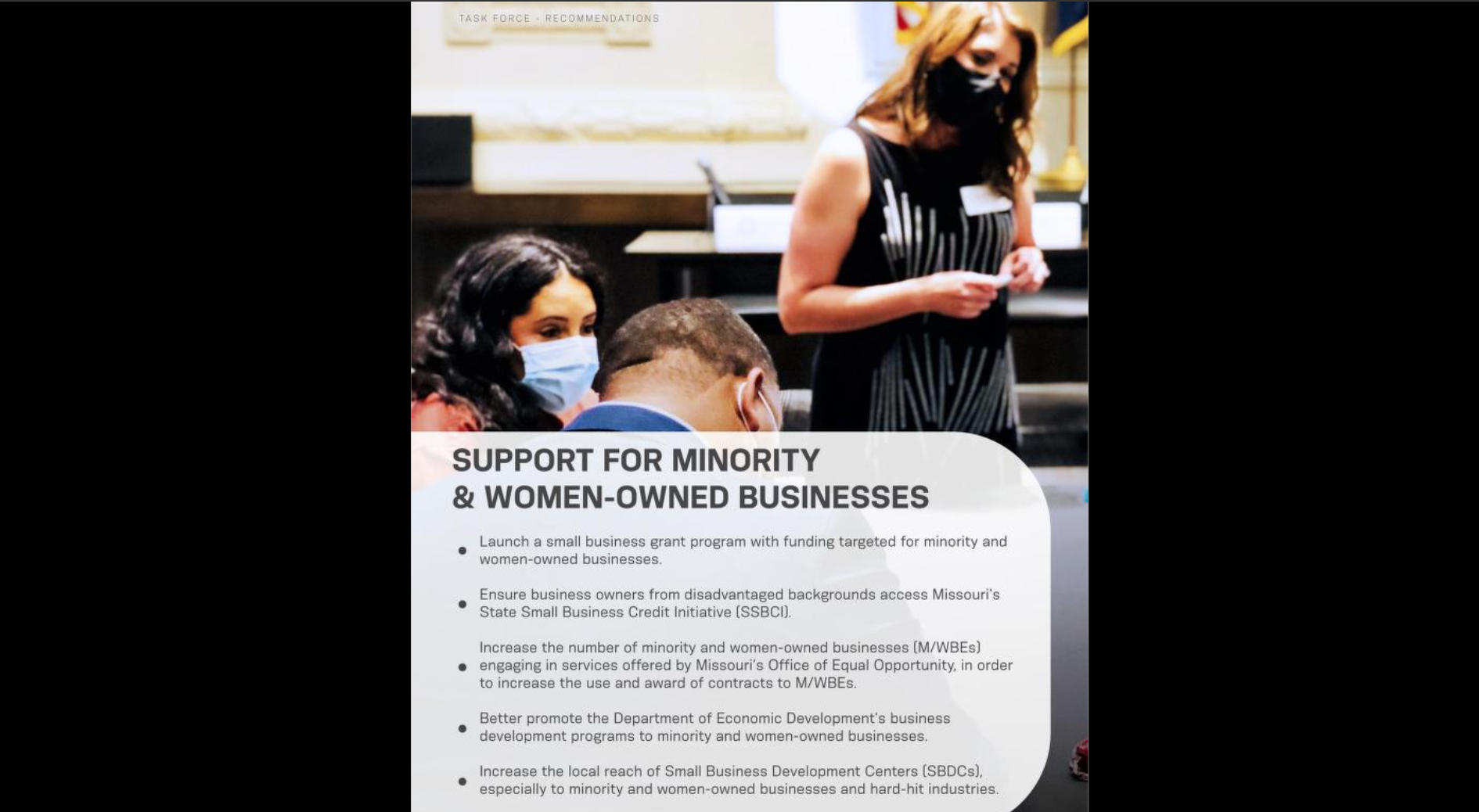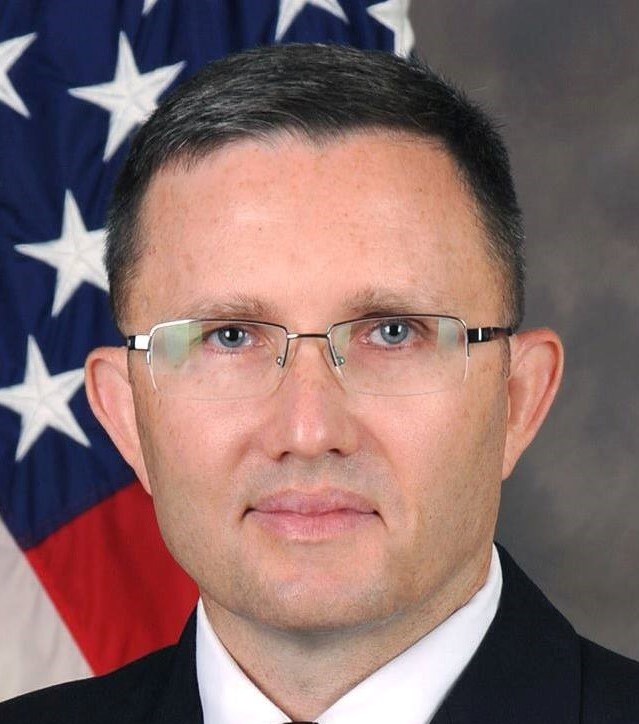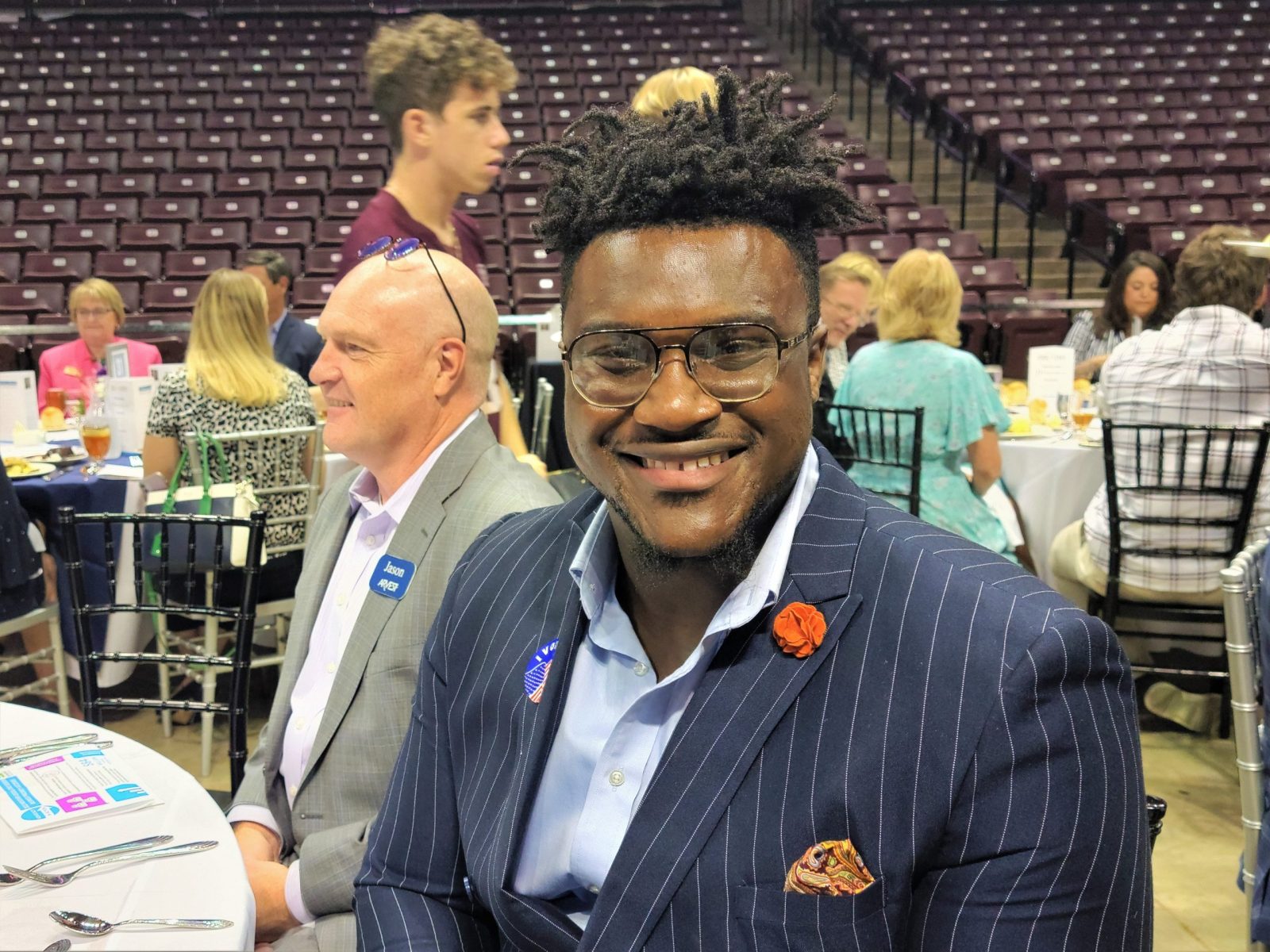Editor’s note: This story has been updated to correctly describe how the U.S. Bank Foundation's funding was used in developing the boot camp.
When the Efactory put out a call for applicants for a business startup boot camp last winter, Jim Robinette of Springfield thought it would be perfect for him.
Robinette said he never finished submitting an application to be part of the boot camp, because he found the language in the application excluded him from doing so.
“The small business workshop that they were running for the spring, specifically by its terms, excluded white males, which I am,” he said. “And the fact that I'm a disabled veteran cuts no ice with that.”
Robinette tweeted a complaint to the Efactory, and sent complaints to state and federal offices. While those efforts did not gain traction, his complaint to a conservative foundation did. Last week, the Equal Protection Project, a division of the Legal Insurrection Foundation, sent a letter to the Missouri Attorney General’s Office. In the letter, the group argued the boot camp designed to give stipends and training to 10 “aspiring or current BIPOC and/or women small business owners” was exclusionary to white males. A few days after it hit Attorney General Andrew Bailey's inbox, it made Fox News.
Missouri State University, in a statement to the Hauxeda, said, “All applications were considered.” MSU President Clif Smart said that — given the boot camp was one of several cohorts that have participated in similar programming at the Efactory — and that this cohort was funded with private dollars, the university had done nothing wrong. However, Smart said, the manner with which the Efactory sought out applicants last time around is one that won’t be repeated.
“While this was one cohort of many and while this was funded with private money, we get the perception that this causes, and our plan would be to not to duplicate this again,” Smart said.

Boot camp was designed in response to governor’s task force recommendations, Smart says
Missouri State University, in response to questions last week from Fox News, said the spring boot camp was privately funded and was focused on minority and women-owned businesses on a one-time basis.
“On an ongoing basis, the Efactory will continue to offer the Early-Stage Business Boot Camp Program at no cost to the participants, and irrespective of their race and/or sex,” the university said in the statement.
The small business boot camp in question concluded on April 18. Participants told the Efactory team that it was a “gold mine of resources” and filled with “rich content.” Each participant who completed the course received not only educational material but also a $3,000 stipend. Private grant funding from the U.S. Bank Foundation covered the costs of developing and offering the program to participants at no cost. The participants' stipends were funded through a grant from the Missouri Scholarship and Loan Foundation.
“Reducing barriers and providing early-stage capital is critical for starting new businesses and seeing entrepreneurial success in our community,” Rachel Anderson, the director of the Efactory, said in a press release last year about the program.
“Based on the positive feedback and recent funding opportunities, we are excited to expand this program for all entrepreneurs across Southern Missouri,” MSU said in a statement Monday.
Smart said the eligibility criteria for the spring 2023 Early-Stage Business Boot Camp Spring Program was developed in response to recommendations that came out of Gov. Mike Parson’s Show-Me Strong Recovery Task Force. The recommendations in the task force report included launching a small business grant program with funding targeted to minority and women-owned businesses.
The report was produced in response to struggles small-business owners were navigating during the pandemic. It also notes that about 75 percent of entrepreneurs of color in Missouri were having trouble accessing capital before the pandemic. Comparatively, about 47 percent of white-owned firms reported a similar experience.
Smart said this week the Efactory is rolling out its latest version of the boot camp, and it will be open to everybody. In the future, the better strategy will be to market opportunities like the boot camp in places where people who would benefit from the experience will see there is an opportunity open to them.
“We did a particular program because of a need that came out of an executive order from the governor that was privately funded,” Smart said. “And now we're running the same program that's open for everyone. So we were not trying to exclude white men from this program. It was just a particular cohort that private funding indicated (that) they wanted to support certain people.”
related story
Rebranding DEI focus of one topical MSU diversity conference panel
One of the first sessions scheduled during Missouri State University’s two-day Collaborative Diversity Conference is titled, “Are we there yet? The struggle to recalibrate and rebrand DEI.”
“It's flat-out not lawful, and your article ought to say that.”
Robinette said he’s friends with the founder of Social Imposter, a company that tracks down and deletes fake social media profiles of notable people. But Robinette, who once served as general counsel at West Point, said the company’s founder has had a hard time making inroads with defense leaders.
“So I was looking at starting my own company and essentially partnering with Kevin to go after that market,” he said.

Robinette said he was still in the brainstorming phase of how such a business would work when he noticed Missouri State University’s Efactory was seeking applications for a small business boot camp. Then he noticed the wording on the application. Then he tweeted a response to the university in a set of tweets replying to a Daily Citizen post about the application process being open.
The first read in part, “Hope the @efactory is ready for litigation…”
The second was similar to points he made in an interview Monday with the Daily Citizen. Robinette said it’s “entirely appropriate” for the university-based institution to encourage specific groups of people to apply for such a program. Excluding specific people was another matter. He pointed to the words written above the entrance to the U.S. Supreme Court — “Equal justice under law” — and said the Efactory’s boot camp application was in violation of that tenet.
“And so that's why I felt pretty strongly about it, and I put a complaint in with the Missouri Attorney General's Office and I put a complaint in with the U.S. Department of Justice after I got no indication from anybody at Missouri State,” Robinette said.
He later added: “It's flat-out not lawful, and your article ought to say that.”
Both Robinette and the Equal Protection Project’s letter to the attorney general pointed to the wording found in the application to support their claims, including this part:
By selecting “Yes” I certify that I am a BIPOC or woman founder in southern Missouri and I commit to attending all training sessions if I am selected for the program. I understand that failure to attend all sessions will forfeit the program stipend.
An applicant could pick yes or no. Robinette said he didn’t bother finishing after he’d read it.
“The language stopped me from applying,” he said. “I was specifically excluded. I took them at their word.”
While Smart said he believed the university had done nothing wrong in using private funding to provide stipends for one cohort of many, he also said there are better ways to target specific cohorts that don’t make a program appear to be exclusionary, and that this will be a learning experience for the Efactory.
“Frankly, I still don't think we did anything wrong given that we have multiple cohorts of this going on and this was just one cohort that was limited,” Smart said. “We won't do that. We'll do a better job on the marketing and information (and) dissemination side and review the process to make sure that everyone has a chance to participate, but we're not going to exclude people.”
And Smart specifically encouraged Robinette to apply to be part of the cohort for the Efactory’s upcoming boot camp.
Editor’s Note: Jim Robinette is a member of the Hauxeda Diversity Equity and Inclusion (DEI) Advisory Panel. The panel is a group of unpaid volunteers that meets on a quarterly basis to discuss the Daily Citizen’s efforts to improve diversity, equity and inclusiveness in its journalism and operations.


